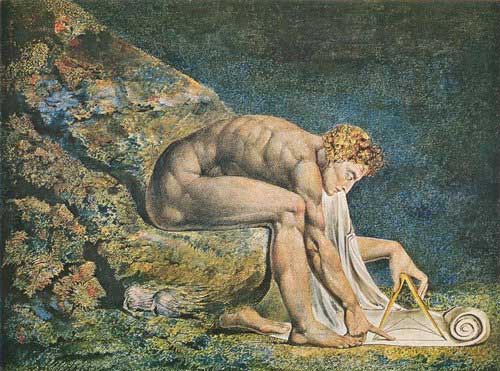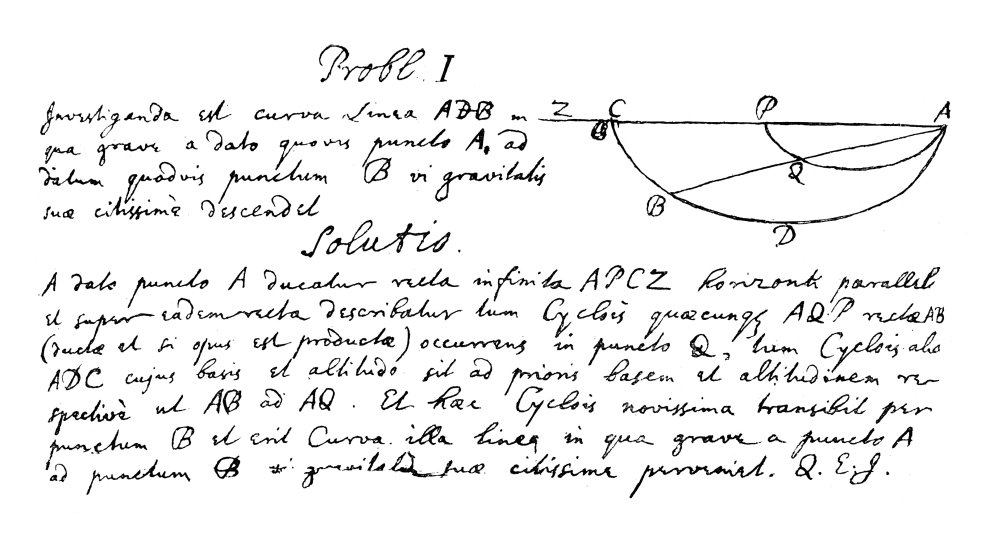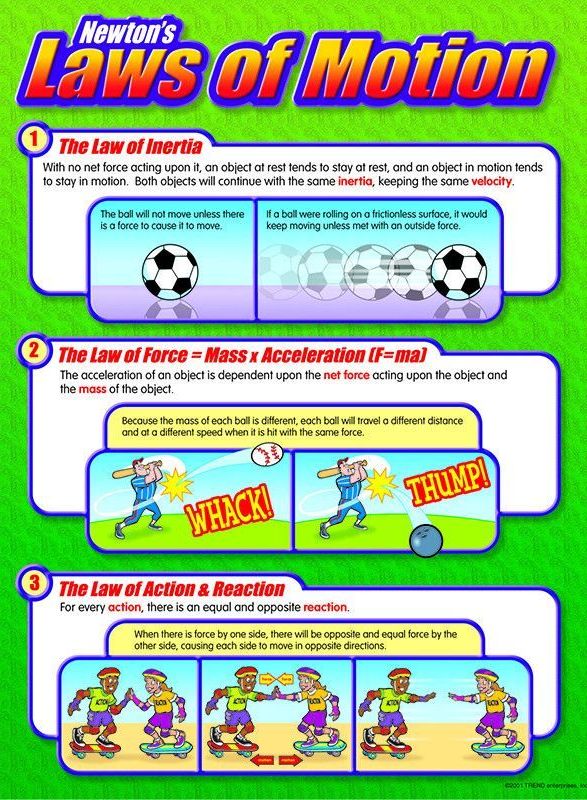|
home | what's new | other sites | contact | about |
||
|
Word Gems exploring self-realization, sacred personhood, and full humanity
Quantum Mechanics
return to "Quantum Mechanics" main-page
Sir Isaac Newton (1643 - 1727)
The latter 1600s was a time dominated by the massive and astounding scientific discoveries of Isaac Newton. His work was deemed to be so important that many believed he had spoken the final word on science and that nothing more of consequence could be added.
"Let Newton be! and all was light" Sir Isaac's stellar reputation is revealed by the poet Alexander Pope (1688 - 1744): "Nature and Nature's laws lay hid in night: God said, Let Newton be! and all was light."
Newton as "divine geometer" In a painting by William Blake (1795), Newton is depicted as godlike, exercising mathematical prowess...
... compass in hand, crafting deterministic reality. Artwork such as this suggests a larger-than-life intellectual stature attributed to Newton.
10 million words in his manuscripts In the article The Strange, Secret History of Isaac Newton's Papers by Adam Mann we learn that "When Sir Isaac Newton died in 1727, he left behind no will and an enormous stack of papers. His surviving correspondences, notes, and manuscripts contain an estimated 10 million words, enough to fill up roughly 150 novel-length books. There are pages upon pages of scientific and mathematical brilliance. But there are also pages that reveal another side of Newton, a side his descendants tried to keep hidden from the public."
Sir Isaac's notes from the Principia manuscript
While Newton enjoyed a respect bordering on godlike reverence, this high regard was directed toward a narrow area of his research. About 7 million words were devoted to subjects which many, even in his own day, would have felt uncomfortable with, declared to be heresy, or simply denounced as rubbish. Nearly three-quarters of the writings were devoted to subjects such as biblical prophecy, a refutation of the Trinity, a disagreement with Jesus' status as equal to God, alchemy - turning one substance into another - world chronology, and other topics.
all of this was Sir Isaac’s life-work, but none of it represents what the world means by the term “Newtonianism” Newtonianism, in the popular definition, refers to his work in physics. However, strictly speaking, not all of his physics. He investigated light, color, and prisms, with good success, as it laid the foundation for future studies in optics – but, oftentimes, this is not remembered so much. Newton's theory of gravity is still a topic of discussion. But it’s fallen from grace. His math still works, it still makes good predictions, but the underlying notion of a universal force of attraction has been superseded by Einstein’s General Theory of Relativity.
“Newtonianism” really means, according to popular definition, his famous “three laws of motion”
Newtonianism became a way of looking at the world and the nature of reality itself. The “three laws of motion” were shown to offer extremely accurate models and predictions of how the world works. Implicit in these regularities is the view that reality is something coherent and rational, predictable and regulated. We can count on it, build our lives around it. This sentiment of certitude gave rise to philosophical revolutions such as the Ages of Reason and Enlightenment. It helped to usher civilization away from the Dark Ages of religious superstition, inquisition, and cultism. Further, the very structure of the scientific method, with its objectivity and controlled investigations, would be built upon this ordered and systematized analysis of the essence of things.
So, this sounds pretty good. What’s not to like about Newtonianism? Well, it is good. Newtonianism and “the three laws” took us to the Moon and back and forms the basis of a great deal of physics that built the modern world.
But if Newtonianism is this potent and answers so many questions, why do we even need Quantum Mechanics? Newtonianism works just fine on the level of the macro-world – “large” things like baseballs and skyscrapers and moons; and it also does quite a good job with "slow" things - the speeds of a walk in the park, or a galloping horse, or a bullet, or the escape velocity of an Apollo rocket. No problem with any of these. F = MA (the second law) operates flawlessly there. However, the "laws" of Newtonianism fall apart in the world of the photon, the atom, and sub-atomic particles; all of it utterly falls apart when entities approach the speed of light. In that world, all of the predictability, the seeming rationality, the sense of certitude, the "clockwork universe" of Newtonianism, no longer exists. At all. It never did. The physics of Newtonianism addresses but a very small slice, a very restricted subset of reality – a primary reality that's been cloaked; and when we venture outside this “world with guardrails and instruction manuals,” we suddenly find ourselves in the “real world” of systemic uncertainty, the intrinsically unknowable, and probabilistic structuring. Welcome to Quantum Mechanics.
|
||
|
|



